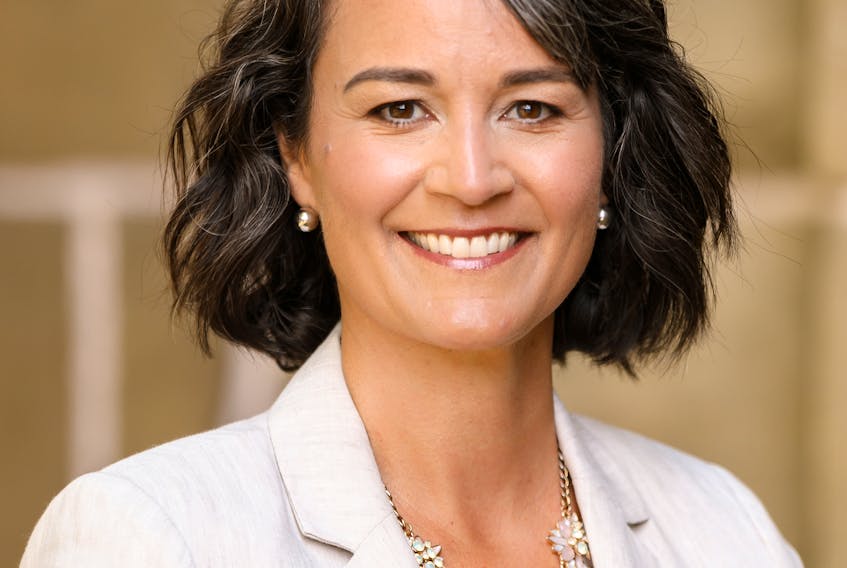Deborah McMillen is feeling the financial strain of COVID-19.
“People says we have a pension, and therefore an income, but what people don’t understand is that it is usually much less than the average income and our expenses are higher than normal, due to higher costs,” says the Crescent Beach, N.S., woman.
McMillen is experiencing higher costs for prescriptions, banking fees from paying people through e-transfers, and higher charges for her internet. Being a low-income, disabled senior is very stressful financially, to say the least, she says.
McMillen is not alone. Many people are worrying about their finances, or the hit their investments may be taking.
“The coronavirus rocked the financial markets,” says Catherine Metzger-Silver, financial advisor at Edward Jones Investments in Kentville, N.S.
Following the outbreak of the virus, oil prices dropped more than 20 per cent, and not surprisingly, the markets took another nosedive, says Metzger-Silver.
Not all doom and gloom
Despite these events, Metzger-Silver says it's not all doom and gloom, and it’s important not to panic, as this recent market volatility may well be attributed more to fear than the forces that usually drive the markets.
“Right now, if you look beyond the headlines, the facts that matter to investors may be far less gloomy than you might have imagined,” she says.
It’s also important to note that this is not 2008, Metzger-Silver says. Investors in 2008 probably remember the market crash that resulted from the bursting of the housing bubble, which had severe ripple effects throughout the economy. The situation is much different now, she says.
From the time the markets bottomed out in early 2009 until just a few weeks ago, Metzger-Silver says Canadian stock prices climbed about 110 per cent. Yet, during that time, there were also two separate market drops of more than 20 per cent, similar to what Atlantic Canadians are seeing now. These market corrections always feel unsettling, but it’s important to recognize that they are actually a normal part of the long-term investing process, she says.
“This is primarily a health crisis, not a loss of confidence in the financial system. While it’s quite likely that the Canadian economy will take a meaningful hit in the short term, the overall economic fundamentals were in solid shape before the coronavirus came along. Specifically, banks were well-capitalized, the labor market conditions were the best in decades, housing activity was improving, and interest rates remained near historic lows,” she says.
Next steps
Kathy Robertson, lead advisor for the Robertson Wealth Advisory Group of CIBC Wood Gundy in Charlottetown, P.E.I., says as the COVID-19 pandemic continues to evolve, it’s important to have a personal financial plan in place that can help you chart a path forward, starting with an emergency fund.
If you had one, did you have to dip into it? And if, so, we need to start thinking about replenishing it for the next time it’s needed, she says. And, if you did not have an emergency fund and have less income now, but all the same expenses, this highlights a need to start one now, she says.
“The recommendation is to have enough cash available to cover three to six months’ worth of expenses or to cover a larger emergency. It can be difficult to accumulate the cash but if not done in a responsible manner, the cost of not having one is far more expensive, as we may go further into debt,” says Robertson.
Metzger-Silver says to start by paying yourself and consider setting up an automatic withdrawal from your bank account into another savings or investment account.
Then, Robertson says, examine your debt, focusing first on what is called ‘bad debt’ - any debt or interest that cannot be used as a tax-deductible expense. If possible, focus on the highest interest debt, like credit card debt, first.
“Move beyond paying just the minimum and add a little extra to each payment to slowly chip away at the outstanding balance. At the same time, be mindful of what you add to the balance,” says Robertson.
Once credit card debt is under control, start looking at lines of credits or loans that charge the next highest interest. Leave the “good debt” - that which can be used as a taxable deduction, like the mortgage or secured line of credit on a property that creates income, like a rental income - until the end.
Long-term goals
The next steps, says Robertson, is to add in savings and investing for short- to long-term goals. Based on what the goal is and when these funds are needed will dictate what type of account you save in and what investments are suitable.
Metzger-Silver says not to panic if you already have investments.
Instead of simply selling your stocks in an attempt to cut your losses, she suggests reviewing your portfolio to see if it is properly balanced between stocks, bonds and other investments in a way that reflects your goals, time horizon and risk tolerance. Those investors with properly balanced portfolios are not seeing the same level of decline as those whose holdings are almost entirely in stocks.
A tip that Metzger-Silver offers is to look for good buying opportunities for investments, because they are out there.
The impulse may be to invest in companies that we are hearing a lot about these days on the news. Remember, though, that by the time the news reaches you, these “hot” stocks may already be cooling off, says Metzger-Silver. Even more importantly, they might not be right for your needs in the first place.
Instead of chasing "hot" stocks - which, by their nature, carry a strong emotional component, namely the desire for quick, big gains - try to coolly and dispassionately analyze your situation to determine which investments are most appropriate for your goals.
“A well-managed company with a solid business plan that produces quality products and services is going to be that same company after the coronavirus and oil price panics subside – and right now, that company’s stock shares may literally be on sale,” says Metzger-Silver.
If you are unsure on any of this, both women advise seeking help and working with an advisor.
Making smart decisions about money throughout our lifetime can have impacts on our lifestyle, says Robertson. Financial planning should be a priority, regardless of your age or situation. It’s never too late or early to have this conversation and ask questions.









